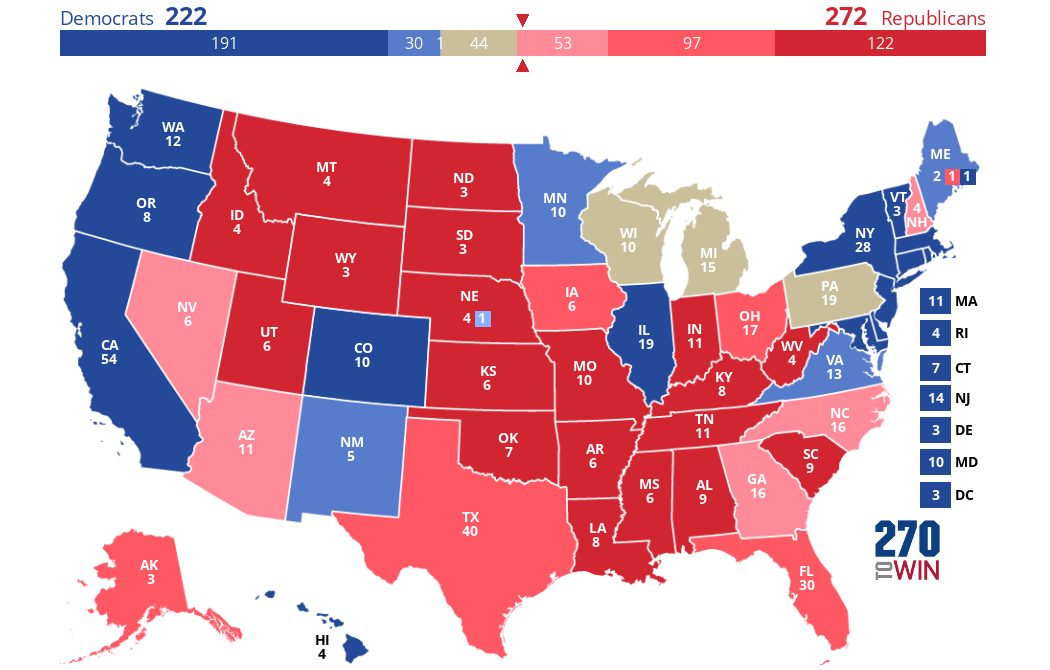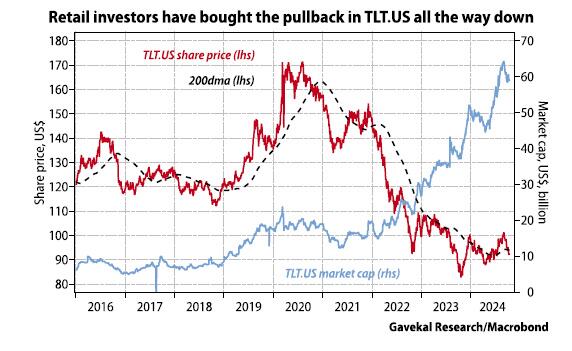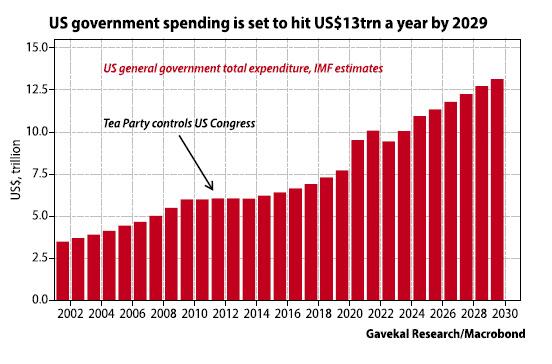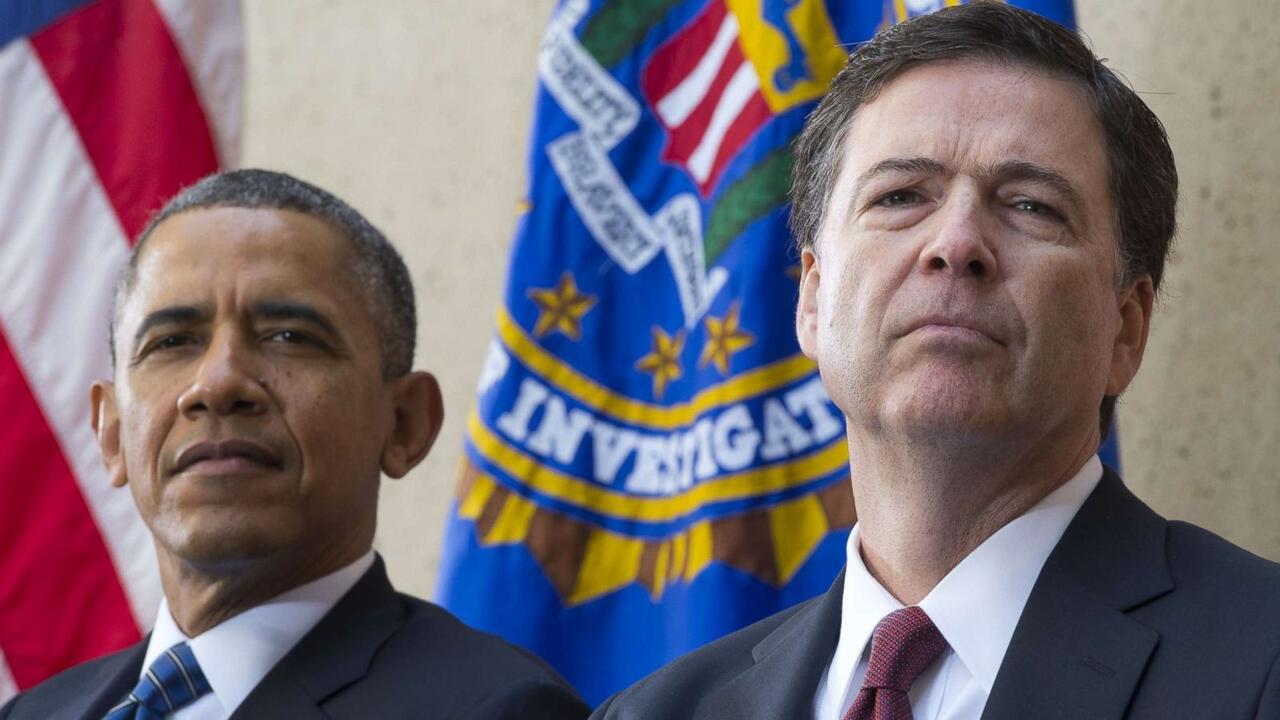“If there is any virtue in the writing of this book, it springs from the sacrifices knowingly or unknowingly made by my two daughters, Kamala and Maya,” Donald J. Harris wrote in 1977 when he was an economics professor at Stanford University. “In return, it is dedicated to them.”
The book, “Capital Accumulation and Income Distribution,” is a 313-page critique of capitalism and its allegedly inherent flaws, including “income inequality,” “cyclical disturbances,” and “exploitation” of workers. “Drawing upon certain elements of Marxian theory,” the preface says, Harris approvingly cites the socialist nostrums of Karl Marx and his partner Friedrich Engels – as well as Vladimir Lenin, the founder of communist Russia – to make his case for an “alternative” economic model in America.
Kamala Harris followed in her father's footsteps and studied economics at Howard University.
AP
Kamala Harris was 13 at the time. Five years later, she majored in economics at Howard University in Washington, D.C., where she led an economics club founded in the name of black Marxist Abram Harris.
Such facts might be unexceptional but for the Harris campaign’s narrative that the presidential candidate has little to do with her father. A New York Times article reported this month that the two have “been estranged for years” and “seldom speak.” The Times even repeated rumors he was a no-show at the Democratic convention, another sign of their alleged “cold war.”
While the vagaries of family relationships are often complex and hidden from view, RealClearInvestigation’s examination of the six-decade relationship between father and daughter suggests they have been closer than the campaign lets on. While there is little evidence to support Donald Trump’s claim that Kamala Harris is a “Communist,” the record shows that Donald Harris’ left-wing views resonate with his daughter. In a campaign that has provided little policy discussion, her perspective also suggests how she might govern.
Despite her mother taking custody of the two daughters following a 1971 divorce, Kamala Harris echoes her father in both the egalitarian language he used, such as “social equity” and “income disparities,” and the progressive policies he advocated, including government-run health care and expansive government poverty programs.
The year before she first ran for president in 2019, her Jamaican-born father wrote an essay for a Jamaican publication in which he recounted instilling a “deep social awareness” in his oldest daughter. “Kamala was the first in line to have it planted,” Donald Harris wrote.
While there’s no evidence Donald Harris has formally advised his daughter’s 2024 campaign, he has been more of a factor in her life and intellectual development than is commonly understood. And while he does not show up in White House visitors logs, it doesn’t mean the two haven’t met privately. Property records show the 86-year-old lives in a condo less than two miles from the vice presidential mansion where Kamala Harris lives with her husband on the grounds of the Naval Observatory. Her father has lived in Washington since Kamala was elected to the U.S. Senate in 2016; and back then, they lived right down the street from each other.
Donald Harris was an economic advisor to Jamaican Prime Minister Michael Manley, left, who admired Fidel Castro.
AP
A search of the LexisNexis database of news articles and public records going back several decades reveals details of their relationship through the years:
- After her parents split, Kamala spent her entire summers living with her father in Palo Alto, Calif., and would often attend marches and protests with him.
- Donald Harris, or “Don,” as he’s known, attended Kamala’s high school graduation in Montreal.
- He took her on trips to Jamaica not only to teach her about her heritage but also about the whites who colonized Jamaica and enslaved its people. He introduced Kamala and her younger sister to key figures involved in the island’s socialist struggle.
- “I would also try to explain to them the contradiction of economic and social life in a ‘poor’ country, like the striking juxtaposition of extreme poverty and extreme wealth, while working hard myself with the government of Jamaica to design a plan and appropriate policies to do something about those conditions,” Don Harris recalled in his 2018 essay. Harris was an economic adviser to Jamaica’s socialist politician, Michael Manley.
- After Kamala won her U.S. Senate seat in 2016, her father sent her a note of congratulations, and the two celebrated her victory over dinner.
- Don Harris posed with Kamala for a photograph in 2018 at a family get-together, which he later posted on a Jamaican website. The two are seen standing arm in arm. “All grown up now, Kamala is carving a way for herself in America,” her father proudly said in a caption.
- In early 2019, when she announced her bid for the White House, her father offered to give her and her campaign economic policy advice. But the arrangement soured months later when Kamala gave an interview in which she came out in support of legalizing marijuana while suggesting that her Jamaican roots made her predisposed to accepting pot-smoking. But Don Harris sternly opposed the “ganja” culture of Jamaica, arguing it held its people back, and he publicly scolded his daughter in the Jamaican press.
- The next year, however, the father sent a letter to Kamala congratulating her on her nomination to the Democratic ticket as Joe Biden’s running mate. After her 2020 election, the daughter invited him to the inauguration festivities. It’s not clear if Harris, who likes to stay out of the spotlight, attended.
Kamala Harris with her father, Don Harris, and niece, Meena.
Donald Harris
Kamala Harris has never confirmed publicly she is estranged from her father, whom she noted in her convention speech “taught me to be fearless.” In an email to the Washington Post in 2021, in fact, Harris said that she and her father were on “good terms.” She has, however, also said they are “not close.”
Though Donald Harris no longer lectures at Stanford, he still does consulting and has recently advised the World Bank and the city of Baltimore, among other clients, on economic issues.
Neither the Harris campaign nor Don Harris returned requests for comment.
Radical Politics
In 1961, Donald Jasper Harris immigrated to America and eventually earned a PhD from the University of California at Berkeley, where he completed his dissertation, ironically, on inflation – an issue that has dogged the Biden-Harris administration and his daughter’s campaign. The next year, he joined a radical black Marxist group on campus known as the Afro-American Association, where he gave lectures on “social inequality.” He met his wife, a biomedical scientist named Shyamala Gopalan, who shared his leftwing views, at one of the group’s rap sessions. They married in 1963. Kamala was born a year later.
The group – which Don Harris referred to as his “oasis” – refused admission to white students; included among its members were Bobby Seale and Huey Newton, who would establish a violent breakaway offshoot, the Black Panther Party. The Afro-American Association was also enamored with Fidel Castro and the communist takeover of Cuba and arranged trips to Havana in 1963 and 1964 in defiance of a State Department travel ban.
The group, which took young Kamala on protests and marches in the San Francisco area, had a lasting influence on her. One of its members, black nationalist Aubrey LaBrie, became a lifelong family friend. Like the others, LaBrie believed the underlying cause of black problems in America was not just discrimination but free market capitalism. His aunt rented the Harris family a flat in the ’60s and ’70s. When Kamala was sworn in to the Senate, she placed her hand on an old Bible that belonged to his aunt, according to published reports.
Don Harris bonded with Malcolm X over the black leader's rejection of both white society and capitalism.
AP
While enrolled at Berkeley, Kamala’s father formed a friendship with Malcolm X. “I had the privilege of knowing him personally,” Don Harris revealed in a lengthy column he wrote for the Jamaican newspaper, “The Kingston Gleaner,” in 1965, following the assassination of the civil-rights firebrand.
Harris said he bonded with Malcolm X over his rejection of both white society and capitalism. Harris complained the black man’s daily experience “consists of confronting the unscrupulous white landlord, the hostile white policeman, the insensitive white social worker, and if he has a job, the arrogant white employer.”
In his tribute to Malcolm X, Kamala’s father argued in favor of Malcolm X’s version of resistance, which condoned violence against “white racists,” in contrast to Martin Luther King’s non-violent approach to securing equality. He explained that peaceful civil-rights protesters did not have enough “real contact” with “rank-and-file” blacks to understand their “anger, resentment and frustration” and “take up more militant positions.” Don Harris also viewed America as a colonizer of blacks: “Certainly there is some validity to [Malcolm X’s] comparison of the civil-rights movement [in the U.S.] and the anti-colonial movement in Africa and Asia.”
After graduating from Berkeley, Harris bounced around at a number of colleges teaching economics before landing a plum assignment at Stanford in 1972. Thanks to lobbying by fellow Marxists with the Union for Radical Political Economics (URPE), Stanford granted Harris a tenured professorship in economics in 1974, according to the Journal of Economic Issues.
Some colleagues in the department frowned on his hiring, however, viewing him as a troublemaker and a bad influence on the student body. A 1976 article published in “The Stanford Daily” campus newspaper said that faculty described Harris as a “Marxist scholar” who was “leading students astray” from mainstream economics supporting American capitalism. Another article called him a “radical professor.”
Tyrannies of Capitalism
In 1972, Harris penned a 33-page paper, “The Black Ghetto as Colony,” that examined Karl Marx’s analysis of the “super-exploitation” of black workers. He claimed that American landlords, merchants, repair shops, and small manufacturers – the “petty capitalists” – “are tough and mean with respect to their application of the capitalist rules of the game. The victims of their toughness and meanness are black workers and consumers.” He also complained that “corporate capitalists” benefit from “American imperialism.”
Then he advanced the Marxist conspiracy theory that capitalists keep blacks in a chronic state of unemployment as a “reserve army” of labor they can tap into when factories reach full capacity. This way, he claimed, they are able to suppress black workers’ wages.
Strikingly, he did not blame racism but the profit “system” for the alleged exploitation of blacks. “It stretches the imagination to see why, if this were indeed a possibility, black workers should in any way be better off under black owners than under white owners,” Harris wrote.
In other words, the problem of inequality besetting blacks is capitalism, and until it is transformed into Marx’s utopian vision of state-enforced equal outcomes, the black condition won’t improve.
“Mr. Harris’ work is more unashamedly Marxist than anything in modern American politics,” The Economist magazine recently editorialized.
At Howard University, Kamala Harris led an economics club named for Abram Lincoln Harris Jr., who argued capitalism was "morally bankrupt."
Wikipedia
Following in her father’s footsteps, Kamala studied economics at Howard University in a program founded by black Marxist scholar Abram Lincoln Harris Jr., who argued that capitalism was morally bankrupt.
Kamala, who served as president of the Abram Harris Economics Society, describes herself as a capitalist. But, like her father, she appears to reject free markets in favor of “equity,” which seeks to engineer economic outcomes for blacks. “Everybody should end up in the same place,” she has argued, with the same income, property, and assets. Because blacks didn’t start in the same place, she explains, they “need more equitable distribution.”
Her long career shows unwavering support for government welfare programs and race-based preferences and the redistribution of income to pay for them. “[We must be] giving resources based on equity,” she’s said. “If you look at the reality of who will benefit from certain policies, when you take into account that they’re not starting at the same place, and they’re not starting on equal footing,” she added, “it will directly benefit black children, black families, black homeowners.”
These ideas are influencing her campaign promises, which include “fully forgivable” loans up to $20,000 for black entrepreneurs and unspecified “others” and $25,000 for downpayment assistance for first-time homebuyers. Harris is also offering $6,000 a year in tax credit payments for low-income families with children to help “close the wealth gap.” To help pay for these initiatives, she has pledged to raise the corporate tax rate from 21% to 35%, which is higher than the 28% that President Biden had proposed, and to hike taxes on those earning more than $400,000. She also proposes increasing estate taxes, taxing capital gains on stocks and home sales at regular income rates, and, for the first time in history, taxing the unrealized gains of the wealthy.
In a 2019 interview on ABC’s “The View,” Kamala was even open to the idea of raising the top individual tax rate to as high as 80%. “That should be discussed,” she intoned.
In a 2021 interview with Forbes, Kamala argued that capitalism is based on the “false assumption” of equal opportunity. “What we have to do is recognize the disparities that have long existed” between whites and blacks and rich and poor, and close them through socioeconomic programs, such as affordable housing, guaranteed minimum wage, universal health care, and industrial policy initiatives.
This is precisely what her father advocated – and recommended in several economic blueprints he drafted for the Jamaican government over the past four decades. His government-heavy proposals were intended to boost Jamaica’s anemic economy. But output languished.
The Jamaican Experiment
If Kamala is given the reins of the U.S. economy, it won’t be the first time a Harris has helped guide a nation’s economic policies.
“Harris served in Jamaica as economic policy consultant to several prime ministers including Michael Manley,” said John P. David, director of the Southern Appalachian Labor School and emeritus professor of economics at West Virginia University Institute of Technology.
Manley and his wife visit President Jimmy Carter at the White House in 1977.
Wikipedia
Manley, who died in 1997, idolized Lenin and served as Jamaica’s prime minister from 1972 to 1980 as head of the socialist-leaning People’s National Party. He returned to power in 1989 before stepping down in 1992 due to poor health. He was succeeded by P.J. Patterson, who remained in office until 2006. The PNP, which leaned toward the Soviet Union until its 1991 collapse, controlled the government again from 2012 to 2016.
In his 2018 essay, Don Harris spoke approvingly of “the progressive reforms of the Manley era.” But these periods of socialist “reforms” – which included “price controls” on food similar to what his daughter is proposing – marked some of the worst in the history of the Jamaican economy.
The Manley regime directly inserted itself into the management of the economy “by imposing a freeze on wages and imposing price controls, nationalizing three foreign-owned banks, and assuming the ownership of the majority of the media,” according to a 1980 U.S. General Accounting Office report. The government also established a national minimum wage and, on Harris’ advice, broke up large agricultural holdings into farm co-ops.
Jamaica’s price controls backfired with severe shortages, the report found: “Some supermarket shelves are nearly empty of certain staples, such as milk and bread.”
Following the same path, Kamala has announced she would enact “the first-ever federal ban on price gouging – setting clear rules to make clear that big corporations can’t unfairly exploit consumers to run up excessive corporate profits on food and groceries.” She said the pricing rules would be enforced by the Federal Trade Commission.
Economists warn this prescription for taming such inflation will end up having the same bleak result as what happened in Jamaica.
“The key assumption behind price controls is the nationalist delusion that some group of policymakers can figure out what a ‘fair’ price is for each and every good and service across the vast U.S. economy,” said Brian Wesbury, chief economist at First Trust Advisors in Chicago. “It’s the pretense of the kind of central planners who ran the Soviet Union’s economy for decades.”
"It’s a very bad idea,” he added.
The Jamaican economy continued to deteriorate during the 1990s and 2000s under the leadership of Patterson, who softened Manley’s socialist stance and made efforts to liberalize Jamaica’s economy to attract more private investment.
In 1996, Patterson called on Harris to help craft the country’s “national industrial policy.” Harris’ new reforms, though more market-friendly, eschewed the “American model” of the individual entrepreneur freely pursuing his or her own dreams in favor of a network or “group” of entrepreneurs working collectively toward “long-range” goals within “a structured framework” and in “partnership” with the “state.” This was better than just “settling for quick profits,” Harris claimed.
His daughter has promised 1 million government loans for black entrepreneurs and others in “underserved communities.” It’s not clear what social strings would be attached, if any, to starting their businesses.
In 2012, Don Harris returned to Jamaica to help produce yet another economic development plan for the government’s planning institute. His 312-page report proposed establishing a “National Poverty Reduction Coordinating Unit (NRRCU)” to “eradicate” poverty by 2030. He also proposed a massive infrastructure program with goals similar to the one the Biden-Harris administration signed into law in 2021.
“The issue of how to achieve sustainable economic growth with social equity remains a matter of primary concern,” he wrote.
In 1996, Jamaica's Prime Minister P.J. Patterson called on Harris to craft the country's national industrial policy.
Jeffrey O. Gustafson
Patterson credits Harris’ prescriptions for Jamaica’s recent economic turnaround. “He was an invaluable resource,” the former prime minister recently told the Washington Post. “The economic improvements we are witnessing today were founded on the principles and the priorities established in his industrial policy, which have born expected fruit.”
Jamaican economist Damien King disagrees, arguing that Harris’ approach of redistributing ever-dwindling state resources will hurt the country in the long run. He said that the politics of handouts and redistributing wealth to pay for it only makes everyone poorer – the middle and upper classes, who end up paying more in taxes, as well as the poor, who wind up dependent on government succor. King said the socialist party’s “pandering to the poor” did not increase economic opportunities for Jamaicans.
Even the Jamaican government recently reported that a post-COVID boom in cruise ship tourism to the island is mainly responsible for renewed economic growth, not industrial policy. “Resurgence in tourism spurs economic growth in Jamaica,” according to the Statistical Institute of Jamaica.
At the same time, communist China has been propping up the fragile Jamaican economy with massive loans for new infrastructure projects including new highway construction, which has plunged the government deeper into debt. The Chinese are also pouring billions of dollars into bauxite mining and sugar production on the island, which is also contributing to its economic rebound.
Two years ago, Don Harris had no idea his 2012 plan was working. The Jamaican press quoted him blaming the conservative government now in power for not doing more to fix the “problems plaguing the country.” He called for a “reordering of the public sector” to provide more funding for, and intervention in, the private sector. And he slammed the one sector fueling the economy – resorts – for being too corporatized and importing too many foreign goods to supply hotels.
Echoing a favorite phrase of the Biden-Harris administration, he said that “the country needs to have a whole government approach to begin to address the problems,” doubling down on his belief that bigger government is always the best solution.
Like Father, Like Daughter
During the debate last month between Trump and Harris, Trump claimed that Kamala is a Marxist secretly trying to carry her father’s radical mantle into the White House.
“Her father’s a Marxist professor in economics,” Trump said. “And he taught her well.”
Allies of the Democratic candidate argue she isn’t a Marxist; she just wants “equitable treatment” for the historically disadvantaged.
Although the Harris campaign has sought to airbrush Don Harris out of his daughter’s life, it is clear there are strong overlaps in their thinking and her governance. In 2019, for example, GovTrack, a non-partisan group that tracks lawmakers’ voting on bills in Congress, ranked Harris the “most liberal compared to all Senators,” including Bernie Sanders. That means her voting record was to the left of even a self-described socialist, according to Josh Tauberer, GovTrack founder. In addition, Kamala has had her own radical associations. As San Francisco's District Attorney ( 2002-2011), for example, Harris hired Lateefah Simon, former leader of the militant Marxist group STORM Revolutionary Movement to help reform the criminal justice system. She gave Simon, who is now running for Congress in California, a speaking spot at this summer's Democratic National Convention.
In a recent interview with Fox News media critic Howie Kurtz, Trump wondered why the media hadn’t explored the extent to which Kamala was steeped in radical Marxist ideology. He said he fears she was born into an anti-American political movement, which she may be trying to use the presidency to advance.
“Her father’s a Marxist professor of economics. How come nobody interviews him?” Trump demanded. Asked why her father’s political persuasion should matter, Trump asserted that Kamala has adopted his radical worldview and is now trying to cover it up by sounding moderate, even co-opting some of his own MAGA policies.
“Go back to when she was defeated by Biden [in 2020], and she was radical left. She was probably beyond Marxist, if you want to know the truth,” Trump said.
“When you’re more liberal than Bernie Sanders, by a lot, this country cannot have that,” Trump warned. “This country has to get wise to it. They have to find out.”
Columbia University history professor Adam Tooze called Trump’s remarks “the sort of silly nonsense that the GOP circulates when it describes the Democrats as socialist. They clearly aren’t.”
One academic who befriended Don Harris in the 1990s said Kamala is much like her father. “I have the impression that the press tends to exaggerate the distance between them in the political sense, with people saying that he was much more to the left, more of a social democrat than she is,” said Joanilio Teixeira, an emeritus professor of economics at the University of Brasilia, in an interview with a Brazilian newspaper earlier this year.
“I am aware, of course, that some of his theories are very present in his daughter,” Teixeira added. “The question of the distribution of wealth. The question of raising up people of African descent. These issues are very present in what she says.”
Paul Sperry is an investigative reporter for RealClearInvestigations. He is also a longtime media fellow at Stanford’s Hoover Institution. Sperry was previously the Washington bureau chief for Investor’s Business Daily, and his work has appeared in the New York Post, Wall Street Journal, New York Times, and Houston Chronicle, among other major publications.
https://www.realclearinvestigations.com/articles/2024/10/31/her_fathers_daughter_donald_harris_hidden_influence_on_kamala_1069092.html












